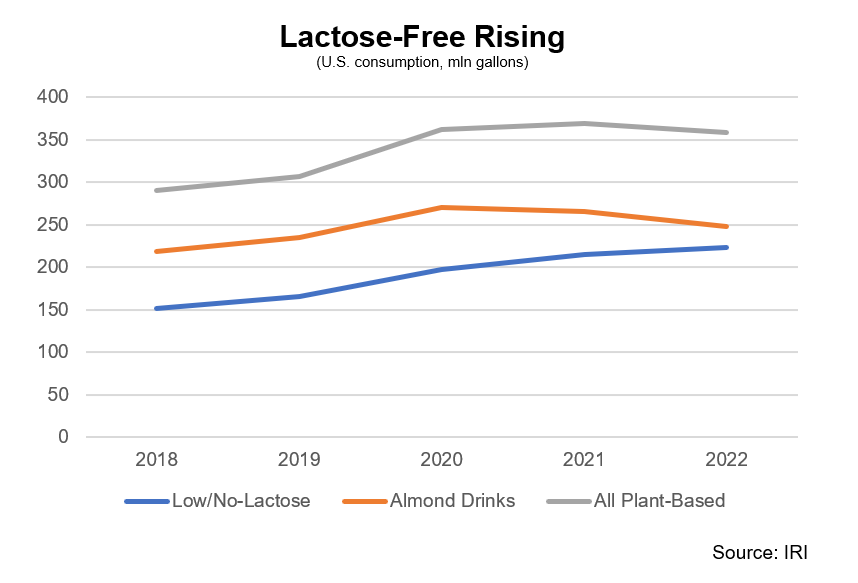Dairy Defined:
If You Want Equity, You Want Milk
March 21, 2023
Faced with demand that’s found its ceiling and with its sustainability and health claims coming increasingly under question, the plant-based imitation milk marketing machine is now coming for your children. Despite the critical importance of dairy nutrients to childhood development, nut-based beverage purveyors are pushing for their white-colored sugar water to have greater access to federal nutrition programs, all in the name of “equity” – an emphasis on fairness and justice that’s become an important paradigm in policy debates.
But equity, in food, requires a quality product and equality in access. And for that, milk, a natural product offered with both regular and lactose-free options, remains by far the best solution. Equity in food policy means making sure that everyone has access to the nutrients they need to thrive. The federal school lunch and breakfast programs, the WIC Program, and other initiatives are meant to ensure nutrition for all.
Lactose intolerance is a concern for populations that have higher rates of difficulty absorbing lactose, particularly African American, Asian American, American Indian and Hispanic/Latino populations. That, unfortunately, is now being used by dairy’s opponents to tout their inferior nutrition as a solution to the problem lactose intolerance.
The latest ploy among the vegan, animal rights and plant-based lobbies is to suddenly paint themselves as social justice crusaders, demanding that their nutritionally inferior (which, even when fortified, remain unequal to dairy’s unique nutritional package) products should now be treated as legitimate milk substitutes in federal nutrition programs – all the while conveniently forgetting that a widely available alternative already exists that circumvents lactose intolerance and delivers the exact same nutritional profile as milk. Because that’s what it is.
The lactose-free milk moment has arrived.
To note: This year, at its current pace, lactose-free milk consumption is set to overtake almond beverages – the most popular plant-based category — in overall U.S. sales volume. Its total consumption is already more than half that of the entire plant-based sector, and it’s four times as much as oat drink, the current darling for aficionados of heavily processed, artificially colored liquids. The rise of low- and no-lactose milk comes even though Starbuck’s doesn’t serve it, many consumers unfortunately aren’t even sure that it comes from a cow, and it doesn’t get nearly the attention it deserves as a solution to lactose intolerance – because the plant-based beverage-makers who shout loudest care more about their marketing pitch and ideologies than in actual nutrition solutions.
Imagine how equitable a solution it would be for lactose-intolerant populations if nutrition programs touted lactose-free milk as aggressively as plant-based lobbyists tout their artificially concocted, nutritionally inferior beverages. And when you think of it that way, it’s an insult to the spirit of equity to tell lactose-intolerant children that they should receive nutrition that’s unequal to what others receive.
These are sensitive topics, but for an honest discussion, sometimes it’s important to “go there.” Fortunately, we’re seeing encouraging signs of progress, with recent USDA proposals beginning to acknowledge the need for greater lactose-free dairy access in federal nutrition programs.
But to get the most equitable nutrition policy, it’s important to point out what equity would look like. It doesn’t mean self-serving arguments designed to goose sales for the declining plant-based beverage industry. It doesn’t mean allowing their advocates to cynically tout a “solution” that would worsen nutrition outcomes. It means making sure that everyone – especially children – gets the best available nutrition, so that everyone has an opportunity to thrive.
And that means milk. We’re more than able to provide that solution.







